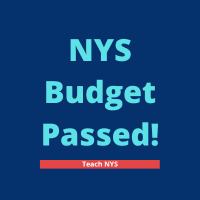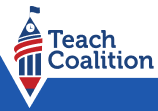
We thank the Governor, the Senate, and the Assembly for stepping up for our students and schools. We also thank our coalition partners, specifically the Catholic Conference, Islamic School Association, Agudath Israel of America, and UJA Federation of New York, who have worked with us, hand in hand, as we continue to fight together for equitable education funding for all children across the state of New York. Finally, these increases and programs happened only because of our school partners, coalition partners, and activists like you. Your hard work is behind every vote of support for these programs that help make strong, safe, and quality Jewish education a reality in New York.
STEM Teacher Funding in Nonpublic Schools
We are thrilled to announce that the STEM teacher reimbursement program increased from $58 million to $73 million this year. For context, in 2017 New York State passed this first in the nation funding that reimbursed our schools for the salaries of our STEM teachers at $5 million. Now fast forward to 2023 and this program has grown by 1360%– One of the fastest growing programs in the state. These are transformative dollars directly impacting our schools that do not come out of the pocket of tuition paying parents.
Universal School Meals
The state has added $134 million in supplemental funding for the National School Lunch Program. While this does not accomplish “universal school meals” it is an impressive start, and we look forward to continuing to work with other school meal advocates until we fully fund this program and secure statewide universal school meals for all. This is largely due to the thousands of you who filled out action alerts, met with your representatives and made your voices heard in Albany.
Comprehensive Attendance Policy (CAP) and Mandated Services (MSR)
For years, these two programs have been a major source of nonpublic school funding from the state. In the new budget, CAP and MSR will be funded at a combined $195 million, which reflects a $1.9 million increase.
Security, Health & Capital Funding Program
$45 million has been allocated to the annual health and safety program. Additionally, schools will now be allowed to use this funding to cover critical repair, maintenance and other capital needs at their facilities. This is in addition to $25 million for the Securing Communities Against Hate Crimes Grant program.

